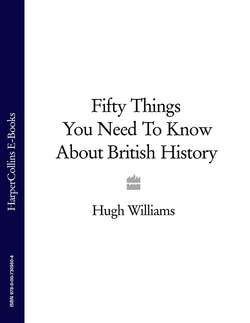Читать книгу Fifty Things You Need To Know About British History - Hugh Williams - Страница 26
The Good Friday Agreement 1998
ОглавлениеAttempts to end ‘The Troubles’ in Northern Ireland have had many false starts. In 1997, the British Prime Minister, Tony Blair, anxious to bring them to an end once and for all, announced the beginning of a new series of all-party talks. They started in September 1997 and ended the following Easter with the Good Friday Agreement.
The Good Friday Agreement of 10th April 1998 was an important turning point in the modern history of Ireland. It announced the introduction of devolved government to Northern Ireland on what it called a ‘stable and inclusive basis’ and created human rights and equality commissions. It agreed to the early release of terrorist prisoners. It demanded the decommissioning of paramilitary weapons. It promised reforms of the criminal justice system and the police. The government of the Republic of Ireland was brought into the process through a formal ‘ministerial conference’ in which it would meet regularly and formally with members of the Northern Ireland administration.
The Agreement was ratified by two referendums – one in the North, in which 71 per cent of the people agreed to it, the other in the South when more than 94 per cent agreed. There was one further significant terrorist incident. A group calling itself the ‘Real IRA’ set off a bomb in Omagh in August 1998, killing twenty-nine people. Failure to agree on the process for decommissioning weapons delayed final agreement even further, but in May 2007, following local elections, the Northern Ireland Assembly resumed its administration of the province on a power-sharing basis.
‘The Troubles’, as they are called, began in the late 1960s when the Catholic minority in Northern Ireland began to protest against what they believed to be discrimination by the Protestant majority. Their grievances developed into violent civil unrest. The Catholic cause was supported by the Provisional Irish Republican Army, ‘the Provos’, whose members saw themselves as the direct descendants of those who had first fought on the streets of Dublin in 1916. The Protestants had their own militia, the Ulster Volunteer Force, which took its name, although not its organisation, from the group formed to defend the Union in 1912. In Ireland, north and south, history is only just below the surface. Perhaps as Ulster’s old enemies, now partners in peace, set about building the future they will sometimes care to look back to Gladstone, the Grand Old Man of Victorian politics who wanted, but failed, to pacify Ireland. Perhaps they will sigh ‘If only’. Perhaps they will ask ‘What if?’
